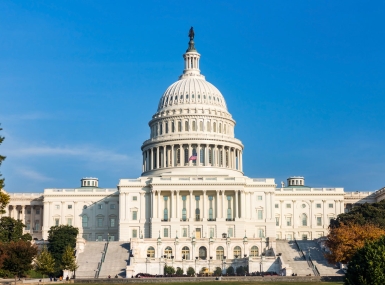EPA to limit veto power over water permits
Upcoming Events
Related News
Key Takeaways
EPA Administrator Scott Pruitt, who resigned July 5, released a memo June 26 restricting the EPA’s power to veto water permits. The action is a reversal of previous administrations’ use of the agency’s veto power and goes into effect immediately.
Under the Clean Water Act (CWA), the Army Corps of Engineers (Army Corps) issues water permits, known as Section 404 permits, for dredge and fill activities in “Waters of the U.S.” jurisdictional areas. These permits may be required for road and levee construction, beach nourishment projects, commercial building and land reclamation. However, CWA also gives EPA the authority to veto Section 404 permits it believes would be hazardous or harmful to waterways, which halts the project. As major owners, users and regulators of water resources and infrastructure, counties are often involved in the Section 404 permitting process.
Administrator Pruitt’s memo limits the agency’s veto use and requires regional offices to gain approval from EPA headquarters before attempting to block a Section 404 permit. Additionally, the memo directs the agency to undertake a public comment period before vetoing a Section 404 permit.
Since 1980, the EPA has used its veto power on 13 occasions, including two controversial vetoes under the Obama Administration. In 2011, EPA vetoed permits for a mountaintop coal-removal operation in West Virginia seven years after the Army Corps approved them, which was challenged in court. In 2014, the U.S. Court of Appeals ruled that EPA has the authority to retroactively veto Section 404 permits. In a separate instance in 2014, EPA rejected a Section 404 permit before an application was even submitted to the Army Corps for review.
Attachments
Related News
‘Fix-It Fair’ brings new life to damaged items, helps divert waste
Thurston County, Wash. partnered with a non-profit, whose members volunteer to fix things that were difficult to recycle.

U.S. House of Representatives passes SPEED Act and other permitting reform bills
On December 18, the U.S. House of Representatives passed the SPEED Act (H.R. 4776). The SPEED Act would strengthen county involvement in decision-making and make needed commonsense reforms to the federal environmental review process.

House Natural Resources Committee advances the Endangered Species Act Amendments Act of 2025
On December 17, the House Natural Resources Committee advanced the Endangered Species Act (ESA) Amendments Act of 2025 (H.R. 1897). The version passed by the committee adopted several changes from the initial bill and would address key county concerns by improving the implementation of the ESA. The legislation now awaits a floor vote before the whole U.S. House of Representatives.